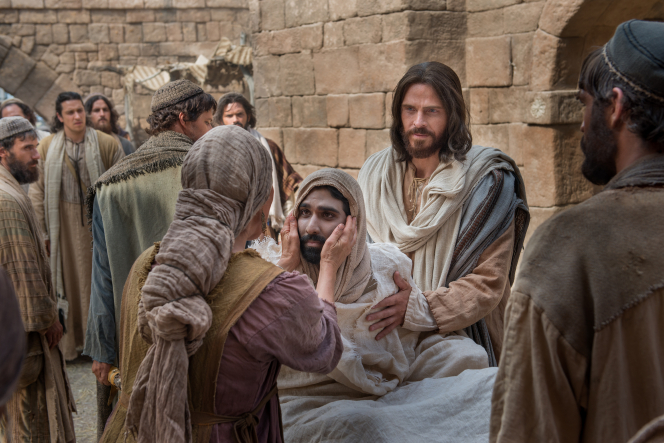The Thirteenth Sunday in Ordinary Time Year C
Reading I: 1 Kings 19:16b, 19-21
Responsorial Psalm 16:1-2, 5, 7-8, 9-10, 11
Reading II: Galatians 5:1, 13-18
Gospel: Luke 9:51-62
Looking at the men Jesus is inviting to follow him, I see questioning, hesitation, uncertainty.
Jesus, rather than trying to persuade them, challenges them: “Foxes have dens and birds
of the sky have nests, but the Son of Man has nowhere to rest his head.” One says that he
wants first go bury his father. The other asks to first go home to say farewell to his family.
Jesus wants them to leave all immediately to go to proclaim the kingdom of God. I am struck
by the intensity of Jesus as he calls them.
As I reflect on the Gospel for this Sunday, a quote from Soren Kierkegaard that what Jesus
wants is “followers not admirers” strikes me deeply. It is so, so easy to admire Jesus. To follow
Him requires much sacrifice. I find that one of my favorite prayers is “Lord, help me to love
you as you deserve to be loved.” As I ask myself if I am an admirer or a follower of Jesus,
sometimes I am not sure.
Yes, I do attempt to imitate Jesus when I ask myself: What would Jesus do in this situation?
What is the truly loving thing to do? Sometimes there is a feeling of happiness and fulfillment
when we extend ourselves in loving God and our brothers and sisters. However, there are
other times when we only feel sacrifice in putting away our own desires in the context
of self-forgetful love.
What is the truly loving thing to do? Sometimes there is a feeling of happiness and fulfillment
when we extend ourselves in loving God and our brothers and sisters. However, there are
other times when we only feel sacrifice in putting away our own desires in the context
of self-forgetful love.
Married couples must learn to compromise and give up some of their own ways for the sake
of a good marriage. Caring parents learn sacrifice when they put aside their own desires for the benefit of their children. I learned sacrifice when I chose to visit my father who had Alzheimer's disease, even after I had realized that he didn't even know who I was. There is sometimes no sense of personal comfort in sacrifices. My experience has helped me understand what is often involved in dedication: the surrender of one's own comfort and/or desires for the good of others.
Jesus certainly put aside his own comfort and humbled himself to take on our humanity and live as a human being with us. This endears him to us. Certainly, he made many, many sacrifices in his lifetime and ended it with the supreme sacrifice at Calvary. The pain of others weighed heavily on his compassionate heart. He was especially aware of the heartbroken state of his mother who
shared so profoundly in his sufferings.
If we are to follow Jesus, rather than simply admire him, sacrifice must be a significant part of our lives. As humans, we usually do not like to sacrifice. Even Jesus struggled in the Garden of Olives before his Passion saying: “Abba, Father, all things are possible to you. Take this cup away from me, but not what I will, but what you will.” (Mark 14:36)
of a good marriage. Caring parents learn sacrifice when they put aside their own desires for the benefit of their children. I learned sacrifice when I chose to visit my father who had Alzheimer's disease, even after I had realized that he didn't even know who I was. There is sometimes no sense of personal comfort in sacrifices. My experience has helped me understand what is often involved in dedication: the surrender of one's own comfort and/or desires for the good of others.
Jesus certainly put aside his own comfort and humbled himself to take on our humanity and live as a human being with us. This endears him to us. Certainly, he made many, many sacrifices in his lifetime and ended it with the supreme sacrifice at Calvary. The pain of others weighed heavily on his compassionate heart. He was especially aware of the heartbroken state of his mother who
shared so profoundly in his sufferings.
If we are to follow Jesus, rather than simply admire him, sacrifice must be a significant part of our lives. As humans, we usually do not like to sacrifice. Even Jesus struggled in the Garden of Olives before his Passion saying: “Abba, Father, all things are possible to you. Take this cup away from me, but not what I will, but what you will.” (Mark 14:36)
It is only with the strength of the Lord that we, humans, can follow and imitate the Jesus. We need to pray to the Holy Spirit whom Jesus sent to help us when being a faithful follower of Jesus seems to be beyond our natural ability.




